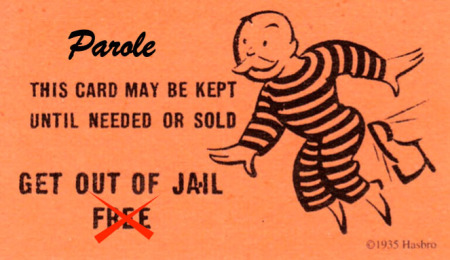Picture curtesy of The Wrongful Convictions Blog
If you haven’t read my article about the Massachusetts Parole Board’s practice if not policy of throwing lifers under the bus, you might do that before you read this post. I am a firm believer that Parole Boards, as Innocence Project expert Phil Locke says, “operate in the shadow of the justice system.” And most people have no idea what is going on when someone comes up for parole, is refused parole, or spend time in prison after parole is granted waiting for release.
That’s why this particular case I wrote about in the Lowell Sun is so aggregregious. Please take a look. It begins:
“This week the Massachusetts Parole Board is meeting to redo regulations. One that should be at the top of its list is how to effectively parole prisoners who have some form of mental illness.
The United States now has 10 times more people in its prisons and jails than in its mental hospitals. As of 2013, approximately 25 percent of Massachusetts state prisoners (counties claim a much higher rate) had open mental- health cases. If you think the state has a parole system that is not broken in this arena, take a look at the Wilfred Dacier case.
No one disputes that Dacier committed an incredibly brutal crime. On Oct. 21, 1995, he stabbed his sister, Susan Dacier, 14 times in a domestic dispute. Wilfred Dacier pleaded guilty to second-degree murder, and was sentenced to life, eligible for parole in 15 years.
But his case reveals a Parole Board that seems bent on not releasing those who have committed life crimes — even if they have proven themselves no longer a risk to reoffend; a board that refuses to pay for mental-health evaluations that are important for parolees’ treatment; and a prisoner who is stuck behind bars solely because of his mental-health issues and not because he is a danger to the public…..” More
I’ll be writing a lot more about lifer cases. Stay tuned. We have to change our course.

